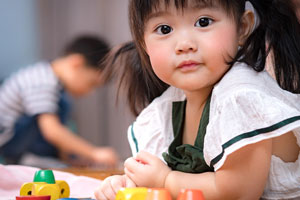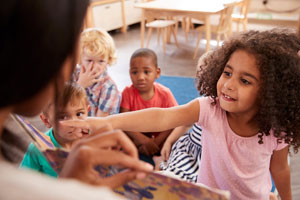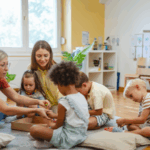
Support children to develop a positive sense of self
The Early Years Foundations Stage framework promotes from an early age, children’s ability to learn about identity and culture, supporting them to develop a positive sense of themselves and others.

Early years practitioners must strive to help children to develop a positive sense of themselves and others through the experiences they provide helping them to learn, understand, recognise, respect and celebrate similarities and differences.
Why it is important
Children are never too young to start to learn about their own identity and culture and that of others (at developmentally appropriate stages).
A positive sense of identity is crucial to the development of self-esteem and confidence and also helps children to recognise and accept differences in others.
Through interaction and experiences with others, children learn that they have similarities and differences that connect them to, and distinguish them from, other people.
They learn that not everyone looks the same, speaks the same, enjoys the same things or feels the same way as them. They learn about similarities and differences between their peers, families, communities and traditions.
It is important to be aware that negative attitudes towards difference can be learned from examples that children witness.
How you can support this
Practitioners play a vital role in supporting children by providing them with a wide range of fascinating and positive experiences, engaging in conversations with children to help them become more aware of and sensitive to how we are different from each other. Celebrating how we are all unique and different supports children’s growing understanding and love for the precious, diverse world in which we live.

Encourage children to:
- Try new and different experiences and give them opportunities to play with other children
- Talk about their own home and community life and find out about other children’s experiences.
Activity ideas
Provide activities and opportunities for children to share experiences and knowledge from different parts of their lives with each other:
- Make a display with the children of all the people who make up the community of the setting
Share stories that reflect the diversity of children’s experiences through displays - When you can (or via an online platform or video)
- Invite people from a range of cultural backgrounds into the setting to talk about aspects of their lives or the things they do in their work
- Invite children and families with experiences of living in other countries to bring in photographs and objects from their home cultures including those from family members living in different areas of the UK and abroad.
- Provide songs, rhymes and musical instruments from a wide range of cultures
- Introduce different traditional foods at snack and meal times
- Make photographic books with and about the children in the setting and encourage parents to contribute to these.
Around your setting
- Display photos of family and other special people
- Look at your displays to see if they reflect the backgrounds and languages of your children and families
- Provide positive images of all children including those with disabilities
- Provide books, stories, puppets that can be used to model responding to others’ feelings and being helpful and supportive to them. Source puppets and books that reflect other cultures
- Provide books and resources which represent children’s diverse backgrounds and which avoid negative stereotypes
- Celebrate and value cultural, religious and community events and experiences – find out from your families which celebrations are important to them and add them to your nursery calendar.
Ensure all staff
- Value all children’s efforts, contributions and achievements
- Recognise and acknowledge feelings and emotions
- Share knowledge about languages with staff and parents and make a poster or book of greetings in all languages used within the setting and the community.
And remember, share best practice with other settings and ask for their ideas too.
Similar Articles
Top tips: Time management and prioritsing tasks

Early years activity: Magic mystery box


